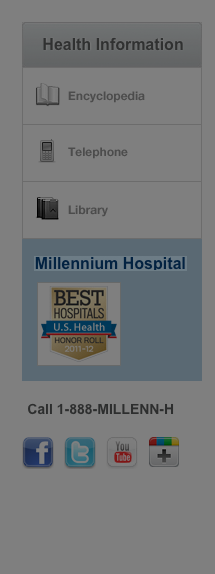Thyroid preparation overdose
 Print-Friendly
Print-Friendly
Thyroid preparations are medicines used to treat thyroid gland disorders. Overdose occurs when someone takes more than the normal or recommended amount of this medicine. This can be by accident or on purpose. Symptoms of thyroid preparation overdose can be the same as symptoms of stimulant medicines.
This article is for information only. DO NOT use it to treat or manage an actual overdose. If you or someone you are with has an overdose, call your local emergency number (such as 911), or your local poison control center can be reached directly by calling the national toll-free Poison Help hotline (1-800-222-1222) from anywhere in the United States.
These ingredients in thyroid medicines can be poisonous if a person takes too much of the medicine:
- Levothyroxine
- Liothyronine
- Liotrix (in international medicines)
- Other thyroid medicine
Other thyroid preparations may also contain harmful ingredients.
I Would Like to Learn About:
Poisonous Ingredient
These ingredients in thyroid medicines can be poisonous if a person takes too much of the medicine:
- Levothyroxine
- Liothyronine
- Liotrix (in international medicines)
- Other thyroid medicine
Other thyroid preparations may also contain harmful ingredients.
Where Found
The poisonous ingredients may be found in these medicines with these brand names:
- Levothyroxine (Euthyrox, Levo-T, Levoxyl, Synthroid, Thyro-Tabs, Tirosint, Unithroid)
- Liothyronine (Cytomel)
- Other thyroid medicine
Symptoms
Symptoms of poisoning with this type of medicine include:
- Anxiety, nervousness
- Tremor, shaking
- Insomnia
- Seizures
- Confusion
- Muscle aches or cramps
- Irregular heartbeat
- Palpitations
- Chest pain or discomfort
- Changes in menstrual pattern
- Dilated pupils
- Excessive sweating, skin flushing
- Nausea, vomiting
- Diarrhea
- Weight loss
- Shock (extremely low blood pressure and collapse)
Home Care
Seek medical help right away. Do not make a person throw up unless poison control or a health care provider tells you to do so.
Before Calling Emergency
Have this information ready:
- The person's age, weight, and condition
- The name of the product (ingredients and strength, if known)
- The time it was swallowed
- The amount swallowed
- If the medicine was prescribed for the person
Poison Control
Your local poison control center can be reached directly by calling the national toll-free Poison Help hotline (1-800-222-1222) from anywhere in the United States. This national hotline will let you talk to experts in poisoning. They will give you further instructions.
This is a free and confidential service. All local poison control centers in the United States use this national number. You should call if you have any questions about poisoning or poison prevention. It does NOT need to be an emergency. You can call for any reason, 24 hours a day, 7 days a week.
What to Expect at the Emergency Room
Take the container with you to the hospital, if possible.
Your provider will measure and monitor your vital signs, including temperature, pulse, breathing rate, and blood pressure. Symptoms will be treated.
If the medicine was swallowed, tests may include:
- Blood and urine tests
- Chest x-ray
- CT scan (advanced imaging) of the brain for neurologic symptoms
- Electrocardiogram (ECG)
Treatment may include:
- Activated charcoal
- Breathing support, including oxygen, tube through the mouth into the lungs, and breathing machine (ventilator)
- Fluids through the vein (IV)
- Laxative
- Medicines to treat symptoms
Outlook (Prognosis)
People who receive quick treatment make a good recovery. But heart-related complications can lead to death.
Symptoms may not appear until a week after the overdose or may build up over time. They may be treated successfully with several medicines.
Related Information
References
Aronson JK. Thyroid hormones. In: Aronson JK, ed. Meyler's Side Effects of Drugs. 16th ed. Waltham, MA: Elsevier; 2016:931-944.
Thiessen MEW. Thyroid and adrenal disorders. In: Walls RM, ed. Rosen's Emergency Medicine: Concepts and Clinical Practice. 10th ed. Philadelphia, PA: Elsevier; 2023:chap 117.
